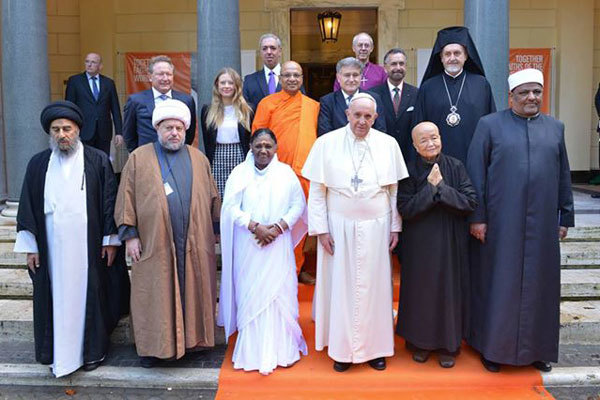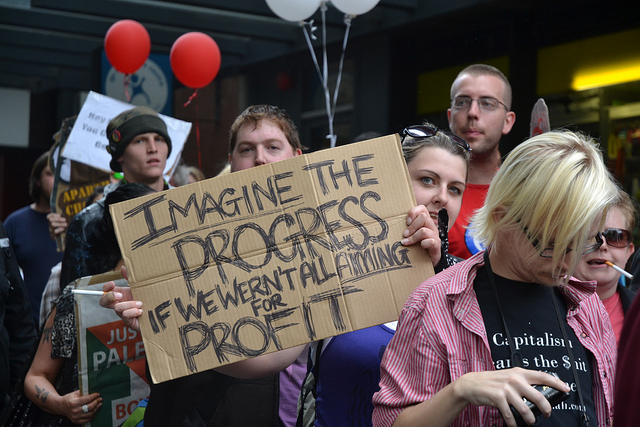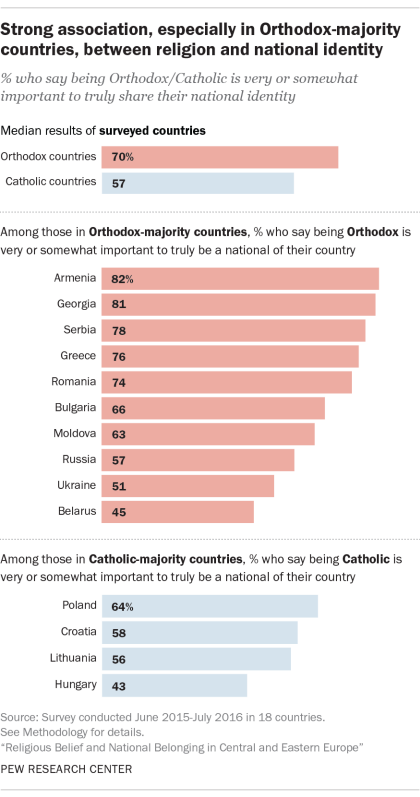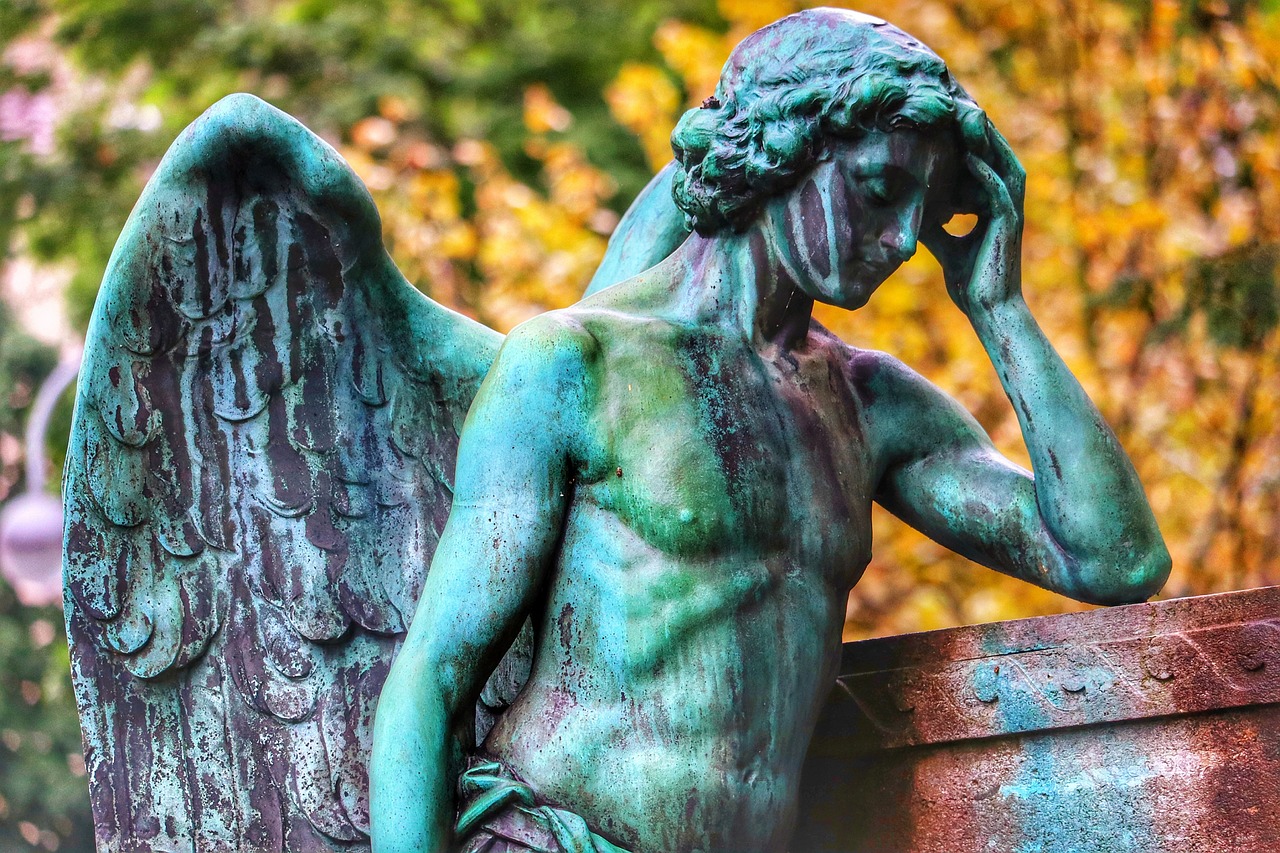Introduction
Religion has played a significant role in shaping the values and cultural landscape of the United States since its inception. As a nation founded on the principles of religious freedom and tolerance, America’s diverse religious tapestry has been a source of both unity and tension. This article delves into the complex relationship between faith and pluralism, exploring how various religious traditions have influenced and continue to shape American values.
Religion’s influence on the United States extends far beyond the confines of mere belief; it has been an indelible force shaping the very essence of the nation. From the earliest days of its founding, when individuals sought refuge from religious persecution, to the modern era of diverse spiritual expressions, the interplay between faith and the American cultural landscape has been a profound and dynamic narrative.
Central to America’s identity is the fundamental principle of religious freedom. The Founding Fathers recognized the importance of this freedom, enshrining it in the First Amendment of the Constitution. This commitment to allowing individuals to practice their faith without interference from the government laid the foundation for the rich tapestry of religious traditions that have since flourished within the country’s borders.
The diversity of religious beliefs and practices in the United States has been both a source of unity and tension. On one hand, this diversity has been a unifying force, showcasing the country’s capacity to embrace a multitude of religious backgrounds, from Christianity and Judaism to Islam, Hinduism, Buddhism, and countless others. It symbolizes the American commitment to inclusivity and respect for individual choice.
On the other hand, this diversity has not been without its challenges. Throughout American history, differing religious beliefs have at times led to tensions and conflicts, highlighting the delicate balance between religious freedom and the need for social cohesion. Yet, the nation’s ability to navigate these tensions and emerge stronger speaks to its resilience and commitment to the principles upon which it was founded.
In examining the intricate relationship between faith and pluralism, it becomes evident that religion has played a crucial role in shaping American values. Religious institutions and leaders have often been at the forefront of social justice movements, advocating for civil rights, labor rights, and other progressive causes. They have provided comfort and guidance in times of crisis and have fostered a sense of community and belonging among their congregants.
Moreover, religious values have permeated American culture, influencing notions of morality, ethics, and social responsibility. Concepts such as charity, compassion, and the pursuit of justice have deep roots in religious teachings and continue to be integral to the American ethos.
This article delves into this complex and evolving relationship, exploring how various religious traditions have not only influenced but also continue to shape American values. It delves into the ways in which faith intersects with social and political issues, highlighting the enduring impact of religion on the nation’s moral compass and its ongoing journey toward a more inclusive and equitable society. In a world marked by diversity, the American experience serves as a testament to the enduring power of religious freedom and the capacity of faith to both unite and inspire.
Should you desire more in-depth information, it’s available for your perusal on this page: The World’s Muslims: Religion, Politics and Society | Pew Research …
One of the cornerstones of American democracy is the freedom of religion, enshrined in the First Amendment of the U.S. Constitution. The Founding Fathers recognized the importance of this freedom, having witnessed religious persecution in Europe. They aimed to create a nation where individuals could practice their faith without fear of repression. This commitment to religious freedom laid the groundwork for a diverse and pluralistic society.
The freedom of religion, embedded within the First Amendment of the U.S. Constitution, stands as an enduring testament to the values upon which American democracy was built. It serves as a bulwark against the dark shadow of religious intolerance and persecution that had plagued many parts of the world before the birth of the United States.
The Founding Fathers, drawing upon their own experiences and the lessons of history, understood the profound significance of this freedom. They had witnessed the horrors of religious strife and oppression in Europe, where individuals were often forced to adhere to the state-sanctioned faith, facing dire consequences for dissenting beliefs. It was against this backdrop that they embarked on the audacious journey of creating a nation where individuals could worship according to their conscience, without the looming specter of repression.
This commitment to religious freedom was not merely a legal provision; it was a moral and philosophical cornerstone. It was a declaration that in this new land, the diversity of faiths and beliefs would be respected and protected. This foundational principle, in turn, paved the way for the creation of a society that is one of the most religiously diverse and pluralistic in the world.
The United States became a refuge for those seeking freedom from religious persecution, welcoming individuals and communities of various faiths, from different corners of the globe. This influx of diverse religious traditions enriched the cultural tapestry of the nation, contributing to its vibrancy and resilience.
Over the centuries, the commitment to religious freedom has been tested and reaffirmed. It has played a pivotal role in shaping not only the nation’s identity but also its policies. The struggle for civil rights and religious equality, from the abolition of slavery to the civil rights movement and beyond, has seen individuals from different faiths joining hands to fight discrimination and injustice.
Moreover, the United States has been a beacon of religious freedom on the global stage, advocating for the protection of this fundamental human right worldwide. It has championed religious tolerance and encouraged nations to recognize the inherent worth of every individual’s beliefs.
In conclusion, the freedom of religion remains a cornerstone of American democracy, a testament to the wisdom of the Founding Fathers, and a beacon of hope for those who seek a land where their faith can be practiced without fear. It is a commitment that has fostered a diverse and pluralistic society, enriched by the contributions of individuals of various beliefs and backgrounds. As the United States continues to evolve, this freedom will undoubtedly remain a guiding light, reminding the world of the enduring power of religious liberty in the pursuit of a more just and inclusive society.
For a comprehensive look at this subject, we invite you to read more on this dedicated page: American Enlightenment Thought | Internet Encyclopedia of …

Religion has played a vital role in shaping the moral values of the American people. Various faith traditions provide ethical frameworks that guide personal behavior and inform public discourse. For example, Judeo-Christian values, deeply rooted in American culture, emphasize principles such as compassion, justice, and charity. These values have influenced societal norms and the development of social welfare programs.
Religion has undeniably been a powerful force in shaping the moral compass of the American populace, and the influence of various faith traditions extends far beyond the individual, reaching into the very fabric of American society and governance.
One cannot overlook the profound impact of Judeo-Christian values on American culture and values. These principles, deeply rooted in the nation’s history, have consistently emphasized notions of compassion, justice, and charity. They serve as a moral foundation for countless individuals, informing their personal conduct and interactions with others. This moral compass is not confined to the realm of personal belief; it plays a crucial role in shaping public discourse and influencing the course of social and political events.
Compassion, for instance, is a core tenet of many religious traditions. It has spurred countless Americans to engage in acts of kindness and philanthropy, from volunteering at local shelters to contributing to international relief efforts. This sense of empathy and responsibility towards others has given rise to a myriad of charitable organizations, addressing societal issues and providing aid to those in need.
Justice, another principle deeply embedded in Judeo-Christian values, has had a substantial impact on American jurisprudence and the pursuit of social equity. The call for fairness, equality, and the protection of individual rights has been a driving force behind the civil rights movement, women’s suffrage, and ongoing efforts to combat discrimination and inequality.
Furthermore, the notion of charity extends beyond individual acts of kindness to influence the very structure of American society. It has played a pivotal role in shaping social welfare programs and policies aimed at alleviating poverty and providing a safety net for those facing economic hardships. Programs like Social Security and Medicare, which have become integral parts of the American social fabric, have their roots in the principle of caring for the vulnerable, a principle deeply ingrained in religious teachings.
In conclusion, religion’s impact on American moral values transcends personal belief systems to influence societal norms and public policies. The enduring principles of compassion, justice, and charity rooted in Judeo-Christian traditions continue to shape American culture, guide ethical behavior, and inspire the development of social programs aimed at creating a more just and compassionate society. In recognizing and understanding the profound influence of religion on American values, we gain insight into the enduring moral framework that has helped shape the nation’s character throughout its history.
To delve further into this matter, we encourage you to check out the additional resources provided here: Religion in Post-World War II America, The Twentieth Century …

The United States is a melting pot of religious diversity. This diversity has led to interfaith dialogue and cooperation, where people from different religious backgrounds come together to address common challenges and promote shared values. Interfaith initiatives have been instrumental in fostering understanding, tolerance, and unity among Americans of various faiths.
The United States, often described as a melting pot of religious diversity, is a testament to the rich tapestry of faiths and beliefs that coexist within its borders. This diversity has not only shaped the cultural landscape of the nation but has also given rise to a profound and essential phenomenon—interfaith dialogue and cooperation.
Interfaith dialogue is more than just a mere acknowledgment of different religious beliefs; it is an active, purposeful engagement between individuals and communities of diverse faith backgrounds. In this context, people from various religious traditions come together to address common challenges and promote shared values. Here are some ways in which interfaith initiatives have been instrumental in fostering understanding, tolerance, and unity among Americans of various faiths:
Promoting Religious Literacy: Interfaith dialogue encourages individuals to learn about and understand the core tenets and practices of different religions. This educational aspect helps dispel misconceptions and stereotypes, fostering a more informed and empathetic society.
Building Bridges of Understanding: Through interfaith discussions and collaboration, individuals find common ground and shared values among their diverse beliefs. This commonality helps build bridges of understanding, creating a sense of unity and shared purpose.
Addressing Social Issues: Interfaith initiatives often focus on addressing pressing social challenges, such as poverty, homelessness, and environmental concerns. By working together on these issues, people of different faiths demonstrate their commitment to shared values like compassion and social justice.
Religious Freedom Advocacy: Interfaith cooperation plays a crucial role in advocating for religious freedom and tolerance. By standing together, individuals and communities can ensure that all faiths are respected and protected in a diverse society.
Conflict Resolution: Interfaith dialogue also plays a role in conflict resolution, both domestically and internationally. By facilitating conversations and negotiations between religious groups, it can help prevent or mitigate conflicts fueled by religious differences.
Crisis Response: During times of crisis, interfaith organizations often collaborate to provide relief and support to affected communities. This demonstrates the power of unity in the face of adversity, transcending religious boundaries.
Educational Initiatives: Interfaith efforts extend to educational institutions, where curricula and programs are designed to promote religious understanding and tolerance among students from various backgrounds.
Community Building: Interfaith initiatives contribute to the creation of inclusive and diverse communities where people from different religious traditions can live and work harmoniously.
Policy Advocacy: Interfaith organizations often advocate for policies that reflect the values of tolerance and diversity, contributing to a more equitable and inclusive society.
In conclusion, the United States’ religious diversity is a source of strength and vitality, and interfaith dialogue and cooperation are instrumental in harnessing this diversity for the betterment of society. By actively engaging with individuals of different faiths, Americans can continue to build bridges of understanding, promote shared values, and work together to address common challenges, ultimately fostering a more inclusive, tolerant, and unified nation.
Don’t stop here; you can continue your exploration by following this link for more details: Religion and Globalization: New Possibilities, Furthering Challenges

Religion has played a central role in inspiring and fueling many social justice movements throughout American history. Leaders like Martin Luther King Jr., a Baptist minister, drew upon their religious convictions to advocate for civil rights and equality. The moral imperative rooted in faith has propelled individuals and communities to work toward a more just and inclusive society.
Religion’s influence on social justice movements in American history is a testament to the power of faith as a catalyst for positive change. Expanding on this idea reveals the deep and lasting impact of religious convictions on the pursuit of justice and equality:
The Civil Rights Movement: Martin Luther King Jr.’s leadership during the Civil Rights Movement is a prime example of how religion can be a driving force for change. King’s commitment to nonviolent resistance, inspired by his Christian faith, resonated with millions and brought about significant advancements in racial equality.
Women’s Suffrage Movement: Religion also played a pivotal role in the women’s suffrage movement. Women like Susan B. Anthony and Elizabeth Cady Stanton, influenced by Quaker and Unitarian backgrounds, advocated for women’s right to vote, citing principles of justice and equality deeply rooted in their religious beliefs.
Abolition of Slavery: The abolitionist movement was fueled by the moral conviction of individuals like Harriet Beecher Stowe, who authored “Uncle Tom’s Cabin” and was profoundly affected by her Christian faith. Religious groups, such as the Quakers, played a significant role in the fight against slavery.
Immigrant Rights and Labor Movements: Religion also found expression in advocating for the rights of immigrants and laborers. Catholic leaders like Dorothy Day and Cesar Chavez, motivated by their faith, championed workers’ rights and social justice issues, including fair wages and humane working conditions.
Civil Rights for LGBTQ+ Community: In more recent history, religious leaders and communities have been instrumental in advocating for LGBTQ+ rights. Progressive religious denominations and leaders have contributed to the acceptance and inclusion of LGBTQ+ individuals, challenging traditional norms within religious contexts.
Environmental Justice: Some religious traditions emphasize stewardship of the Earth and the responsibility to protect the environment. This has led to the emergence of faith-based environmental movements that advocate for sustainable practices and climate justice.
Refugee and Migrant Rights: Many religious organizations and individuals have taken up the cause of advocating for the rights and well-being of refugees and migrants. This is often motivated by religious principles of compassion and the welcoming of strangers.
Criminal Justice Reform: Religious groups and leaders have also been active in advocating for criminal justice reform, emphasizing principles of forgiveness, rehabilitation, and compassion over punitive measures.
In each of these instances, faith served as a moral compass, compelling individuals and communities to engage in social justice movements that transcended religious boundaries. While religion has been a source of inspiration and activism, it is important to acknowledge that interpretations of religious texts and teachings can vary widely, leading to both progressive and conservative approaches to social justice issues. Nevertheless, the legacy of faith-inspired activism continues to shape the ongoing pursuit of justice and equality in American society.
Explore this link for a more extensive examination of the topic: Transmission of Faith in Families: The Influence of Religious …

While religious pluralism is a strength of American society, it also presents challenges. Tensions may arise when religious beliefs clash with secular laws and policies. Issues such as reproductive rights, LGBTQ+ rights, and the separation of church and state continue to be sources of debate and controversy, highlighting the need for ongoing dialogue and compromise.
While religious pluralism is undeniably a strength of American society, its very diversity can give rise to complex challenges that require thoughtful navigation. One of the foremost challenges emerges when deeply held religious beliefs come into conflict with secular laws and policies. This tension underscores the delicate balance that the United States strives to maintain between religious freedom and the principles of a democratic and inclusive society.
Controversial issues such as reproductive rights, LGBTQ+ rights, and the separation of church and state frequently take center stage in this ongoing dialogue. Reproductive rights, for instance, bring to the forefront the clash between religious beliefs regarding the sanctity of life and a woman’s right to make choices about her own body. LGBTQ+ rights raise questions about the intersection of religious teachings and the recognition of the rights and identities of individuals within the LGBTQ+ community. And the principle of the separation of church and state remains a focal point of debate, with questions surrounding the extent to which religious values should influence public policy and governance.
Navigating these challenges necessitates a commitment to ongoing dialogue and compromise. It requires both religious communities and secular society to engage in respectful conversations that seek common ground while respecting individual liberties. Compromise is an essential element of a pluralistic society, and it often involves finding solutions that protect individual freedoms while upholding the rule of law and the principles of equality and justice.
Furthermore, education plays a pivotal role in addressing these challenges. Promoting religious literacy and understanding is essential for fostering tolerance and empathy among individuals from diverse faith backgrounds. It enables people to appreciate the richness of religious diversity while also recognizing the boundaries of religious influence in public life.
In this context, religious leaders, policymakers, and civil society organizations have a significant role to play in facilitating dialogue and promoting tolerance. Encouraging respectful discourse and the search for common ground can help mitigate the tensions that arise when religious beliefs and secular values intersect.
In conclusion, religious pluralism is indeed a strength of American society, but it also demands a continuous commitment to dialogue and compromise. By addressing challenges with open-mindedness, respect for individual liberties, and a dedication to the principles of democracy, the United States can continue to harness the benefits of its diverse religious landscape while fostering a more inclusive and harmonious society.
For additional details, consider exploring the related content available here Religious Pluralism in the Middle Colonies, Divining America …

Religion often intersects with political identity in the United States. Various religious groups may align themselves with particular political parties or causes based on shared values. This intersection has the potential to both inspire positive change and deepen divisions, emphasizing the importance of respectful dialogue and understanding.
Religion often intersects with political identity in the United States. Various religious groups may align themselves with particular political parties or causes based on shared values. This intersection has the potential to both inspire positive change and deepen divisions, emphasizing the importance of respectful dialogue and understanding.
On one hand, when religious communities engage in politics, they bring a moral compass to public discourse. They advocate for social justice, compassion, and ethical governance, urging politicians to address issues like poverty, healthcare, and human rights. This moral grounding can lead to policies that reflect a broader sense of societal responsibility.
On the other hand, the intersection of religion and politics can also exacerbate divisions. Differences in belief systems can lead to polarization, with each group feeling its values are under threat. This underscores the importance of fostering respectful dialogue and interfaith understanding. Encouraging open conversations where diverse perspectives are heard can bridge gaps and build common ground.
Ultimately, the intersection of religion and politics in the U.S. highlights the intricate relationship between faith and governance. It’s a reminder that, in a diverse and pluralistic society, respecting differing beliefs while seeking common solutions is essential for the betterment of the nation as a whole.
For additional details, consider exploring the related content available here America’s Changing Religious Landscape | Pew Research Center

Conclusion
Faith and pluralism are intertwined threads in the rich tapestry of American society. Religion has played a profound role in shaping the nation’s values, guiding moral principles, and inspiring social change. While challenges persist in navigating the complexities of religious pluralism, the United States continues to be a model of religious freedom, tolerance, and coexistence. Understanding the influence of faith on American values is essential for fostering a more inclusive and harmonious society where diverse voices can thrive.
Faith and pluralism stand as two foundational pillars in the diverse mosaic of American society. Throughout the nation’s history, religion has served as both a cornerstone of individual identity and a unifying force that has left an indelible mark on the country’s values, moral compass, and social evolution. The intricate interplay between faith and pluralism has not only shaped the American experience but also posed ongoing challenges and opportunities as the nation strives to uphold its commitment to religious freedom and tolerance.
Religion’s impact on American values is undeniable. It has been a driving force behind the country’s commitment to principles such as compassion, justice, and equality. Religious communities have played a crucial role in inspiring social change movements, from the abolitionist movement in the 19th century to the Civil Rights Movement in the 20th century. These movements, rooted in faith-based convictions, have left an enduring legacy of progress, pushing the nation toward greater inclusivity and justice.
However, the United States’ religious landscape is exceptionally diverse, with a multitude of belief systems and practices coexisting. Navigating this rich tapestry of religious pluralism can be complex, as it requires balancing the constitutional guarantee of religious freedom with the imperative to promote understanding and harmony among diverse faith communities. In this context, there are persistent challenges, including instances of discrimination, misunderstanding, and prejudice.
Nonetheless, the United States continues to serve as a global exemplar of religious freedom, tolerance, and coexistence. The First Amendment to the U.S. Constitution, which ensures the separation of church and state, remains a foundational document that underpins these values. In the face of diversity, the nation’s commitment to religious pluralism is embodied in its ongoing efforts to promote dialogue, interfaith initiatives, and educational programs that foster understanding and respect among different religious groups.
Understanding the profound influence of faith on American values is vital for building a more inclusive and harmonious society where diverse voices can flourish. It requires ongoing conversations, mutual respect, and a commitment to upholding the principles of religious freedom that have been integral to the nation’s identity. By embracing the lessons of faith and pluralism, the United States can continue to strengthen its cultural richness, social cohesion, and commitment to justice for all.
Additionally, you can find further information on this topic by visiting this page: The Transnational Struggle for Jewish Pluralism | Democracy and …
More links
To delve further into this matter, we encourage you to check out the additional resources provided here: David Mislin | Temple University College of Liberal Arts
